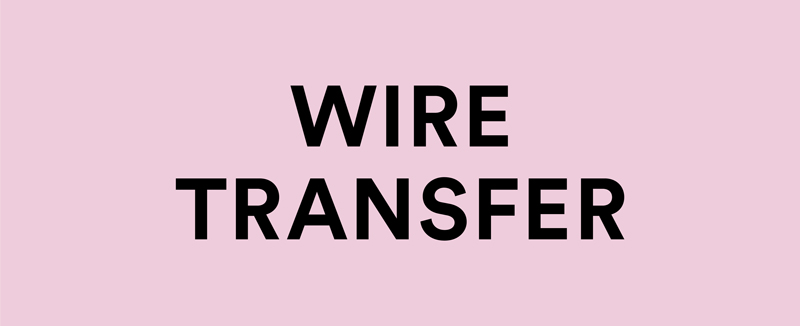Articles with tag:
Signs|Symbols
(9 results)
Compassion: Between Tenderness and Cruelty
There are so many things to say about compassion that one could fill a book or an encyclopedia. A partial list of areas to cover would include: commiseration, piety, love, understanding, sharing, empathy, sympathy, antipathy, intropathy, bliss and clemency. Compassion is what we feel reading about Hector and his wife Andromache, or the dream about the twenty geese that Penelope tells the disguised ‘beggar’ who is really her husband, Odysseus. It is the condition Aristotle refers to in his ‘Poetics’ when he uses the term ‘catharsis’. It is also the virtue embodied by Aeneas as he slings his old father Anchises and his son Ascanius to on his back and carries them out of burning Troy to safety. Or again, when Eros disobeys his mother and falls in love with Psyche. And so on, throughout history, examples of compassion abound, in Romantic literature and then on to the scandal caused by the controversy between Nietzsche and Wagner regarding Schopenhauer. Compassion does not necessarily have the same connotations today as it did in the past. We are not even sure whether the words we use to describe the sentiment correspond to what each of us feels today. The term ‘compassion’ has...
Why Africa? Changing the Narrative of the World
Why Africa? For many years lettera27 has been dedicated to exploring various issues and debates around the African continent and with this new editorial column we would like to open a dialogue with cultural protagonists who deal with Africa. This will be the place to express opinions, tell their stories, stimulate the critical debate and suggest ideas to subvert multiple stereotypes surrounding this immense continent. With this new column we would like to open new perspectives: geographical, cultural, sociological. We would like the column to be a stimulus to learn, re-think, be inspired and share knowledge. For the opening piece we asked our partners, intellectuals and like-minded cultural protagonists from all over the world to answer one key question, which also happens to be the name of the column: "Why Africa?". We left the question deliberately open, inviting each of the contributors to give us their perspective on this topic from their own context. This first piece is a collection of some of the answers we received, which aims to open the conversation, pose more questions and hopefully find new answers. Elena Korzhenevich, lettera27 Here the column's introduction...
Why Africa? Companions of Longitude
Why Africa? For many years lettera27 has been dedicated to exploring various issues and debates around the African continent and with this new editorial column we would like to open a dialogue with cultural protagonists who deal with Africa. This will be the place to express opinions, tell their stories, stimulate the critical debate and suggest ideas to subvert multiple stereotypes surrounding this immense continent. With this new column we would like to open new perspectives: geographical, cultural, sociological. We would like the column to be a stimulus to learn, re-think, be inspired and share knowledge. For the opening piece we asked our partners, intellectuals and like-minded cultural protagonists from all over the world to answer one key question, which also happens to be the name of the column: "Why Africa?". We left the question deliberately open, inviting each of the contributors to give us their perspective on this topic from their own context. This first piece is a collection of some of the answers we received, which aims to open the conversation, pose more questions and hopefully find new answers. Elena Korzhenevich, lettera27 Here the column's introduction...
Sharing is the new welfare?
In the last few months I’ve rented rooms through Airbnb, listened to music on Spotify, picked up a free yellow bike in Milan, got a lift from Milan to Florence with Blablacar, grabbed a city car for a quick ride with Car2Go, hailed a cab on a rainy night with Uber, and funded a documentary with an online crowd funding platform. I have quite a few friends who rent office space using a co-working website, though I’ve never actually needed to do so myself. A year ago, none of these opportunities I now consider almost routine were nearly as common. They are all different facets of what is called the “Sharing Economy”, or, less frequently, ‘collaborative economy’, or ‘collaborative consumer economy’ . They have one factor in common: the sharing of private resources (my car, my desk, my music, my home, my bike), which has always taken place informally. The novelty lies in the sheer scale of the sharing. Social networking platforms have made sharing a way of life not only among friends or neighbors, but also among complete strangers all over the world. Is the process Jeremy Rifkind called “from ownership to access” really taking place? An article published by Wired framed the...
The mother of all dances
When I discovered the question, I felt tempted to parody this American actor in this ad for some coffee and to answer: what else? I am the son of Lydia and Simon, two bassa heroes. I am the result of those two beings from a people who fought forcefully for their freedom; two children of Africa. So, what else? What else than that land of shadows and ghosts waiting to be revealed? What else than those millions of stories waiting to be told? Those stories I would read for my grandfather without really understanding, but captured by the mystery of books that could contain a whole world within their pages. Wars, marvels, people, love, hatred, all translated in the subtle magic of words. Conrad did not know to which extend he was right when he called this continent the heart of darkness. He did not know what darkness was in reality and found the right words out of a misunderstanding. What do we say when we say Europe or Africa? People are always convinced to say something when they say “Africa”, which I admire, because I personally still don’t know what is Africa. I say Africa knowing that if we were looking for a definition that would perfectly define the complexity of the...
Peter Handke: The Essay Writer
In recent years, critical attention towards the Austrian novelist, playwright and political activist of Slovenian origin, Peter Handke, has focused more on his activism than on his books. In particular, he sparked controversy when he spoke out in support of the Serbian regime, during the sanguinary civil war in former Yugoslavia, and of its leader Slobodan Milošević, both during his trial in the Hague and at his funeral. Many of his most important works are out of print and there are fewer and fewer reprints scheduled, though there may be some change in the air. And yet, his work continues to be translated. Fortunately, this shows that Peter Handke still enjoys a worldwide readership despite the polemics. Donata Wenders, Peter Handke, Chaville 2009 After receiving such prestigious awards as the Kafka prize in 2008, and the Ibsen prize in 2014, Handke’s return to the public eye inevitably stirred up the controversy. Perhaps it is easier to attack Handke for his views than to analyze and comprehend the full range of motivations the writer has given for his opinions. Admittedly, his unquestioning espousal of Milošević’s doctrines is hard to digest, in particular by today’s...
Kafka in Charlie Chaplin’s Hands
What do Kafka and Chaplin have in common? They both explore the margins of life, where exclusion from the world and from history opens up the curtains of dissimulation and accepts the cognition of pain as destiny. Is the comparison unfeasible? In Benjamin’s view, the worlds of representation are linked together with subtle ties. Aside from differences in time, place, and artistic media, there are mysterious affinities which allow us to juxtapose the two with unexpected hermeneutic results. “Chaplin holds in his hands a genuine key to the interpretation of Kafka. Just as occurs in Chaplin’s situations, in which in a quite unparalleled way rejected and disinherited existence, eternal human agony combines with the particular circumstances of contemporary being, the monetary system, the city, the police, etc., so too in Kafka every event is Janus-faced, completely immemorial, without history and yet, at the same time, possessing the latest, journalistic topicality.” Opening the eighth volume of Benjamin’s collected works is like entering a labyrinth where the paths do not follow a geometric pattern of any kind. They simply carry you on a path of awe and unlikely approaches....
Terrorism and Iconoclasm
There was a time, not that long ago, when the No Logo slogan was all the rage. Brand names of factories that were considered –symbolically but no less terribly – responsible for all the evil in the world. Brands were torn down, physically and emblematically, wherever they were found: on billboards, in shop windows, on designer labels. Some surreptitiously ripped the crocodiles off their Lacoste shirts, while others openly burned gas station signs or fast food chain restaurants hoardings. In a strange economic and cultural commingling, the Enemy was placed under a single umbrella: gas and oil multinationals were bundled together with nauseating hamburger joints, top-end glamor products with the most sought-after sneakers, not to mention the giants of the web with their industrial mentors. The G8 summit in Genoa, Italy, at the beginning of the new millennium was the involuntary funeral of the No Logo movement. Today, protestors gather at the mouths of the tunnels being dug through the Alps so that high-speed trains can race even faster along the new European trade routes. There is still a deeply held suspicion, however, that those logos that we all display, whether we...
What a book is for me
For once let’s not talk about books as objects. At least not today. The rhetoric of recto and verso, the unbearable lightness of its being, the fragrance and roughness of its paper, the wrapping of its cover, that reveals something, but not too much and not immediately. We could talk, for instance, about how each of us might imagine a book that blends advanced technology with the perfection of a ready-made object. Perhaps, one day, instead of pages sitting on an individual screen of an individual tablet, there will be a screen on all the pages of an individual book. Why not? Research and tests on the technology of materials will have made it possible to transmit digital information via paper fibers. The other day I sat and ruminated for hours, while traveling from train to plane to train again, about this unhealthy idea of a book in the future. It would be white, I thought (or a changing color), of average size, portable, page-turnable, surfable, with screen-pages made of a special make of paper that turns on and off. The best of digital combined with the best of analogical. I’d really much rather talk about books as stories though. If we do talk about stories, I...









 Since 2011
Since 2011 

